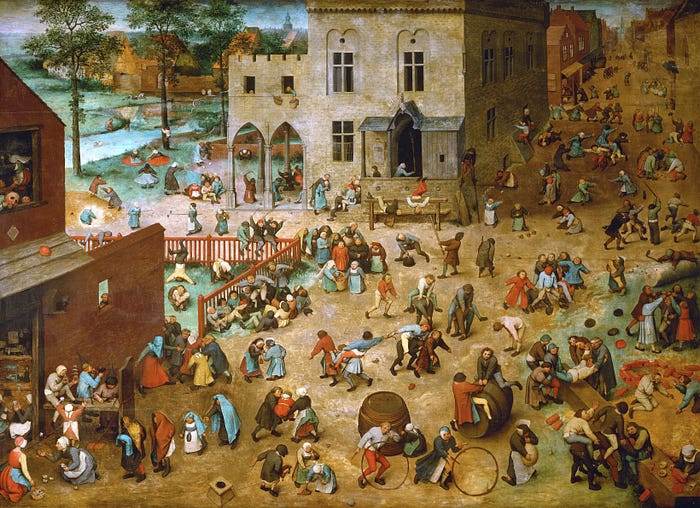Member-only story
PAST IS PROLOGUE
How to Think More Deeply About Play
Play is a serious business. But seriousness does not exclude fun.

I sit down to write something about play, and its importance for human life. And as I write, I ask myself: Am I working? Or am I playing? Sometimes, it is hard to tell.
In a previous piece, I wrote about how to think more deeply about work. In that piece, I talked about how philosophy can help us understand our relationship with work more deeply. But the more I think about work, the more I find the boundaries between work and non-work, between work and play, become blurred and fuzzy.
So if we want to understand human activity better, we need to think better not only about work, but also about play.
Homo Ludens, or how we are made for play
Much of our lives is spent playing. We joke with our friends. We play games and sports. When nobody else is around, we try to balance tennis balls on our noses just for the sheer thrill of it. At a quiet bus stop, when nobody else is around, we wonder how long we can stand on one leg.
But philosophical accounts of human life often overlook play. A good example of this is Hannah Arendt’s famous book The Human Condition (1958). Arendt…

